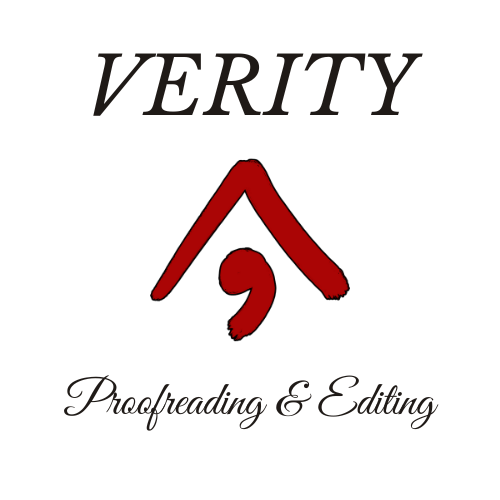If you’re a new writer dreaming of publishing your novel, memoir, or self-help book on Amazon KDP, there’s one silent saboteur that might be holding you back: perfectionism in writing. It’s the voice that says, “This sentence isn’t good enough,” or “You’ll look foolish if this isn’t flawless.” And while high standards can motivate great work, perfectionism often leads to procrastination, self-doubt, and unfinished drafts.
At Verity Proofreading and Editing, we’ve worked with countless aspiring authors paralyzed by the pursuit of perfection. The good news? You can learn to let go, write freely, and produce your best work—without letting perfectionism rule your creative life.
What Is Perfectionism in Writing?
The Psychology Behind It
Perfectionism in writing is the compulsive desire to avoid mistakes and produce flawless work. According to the American Psychological Association, perfectionism is linked to fear of failure, self-criticism, and anxiety—especially in performance-oriented tasks like writing.
How It Shows Up for Writers
- Rewriting the same paragraph endlessly
- Delaying publication due to minor issues
- Constantly second-guessing every sentence
- Avoiding feedback or edits out of fear
While it may feel like you’re improving your work, perfectionism often creates a never-ending loop that stifles creativity and progress.
 Why Perfectionism in Writing Is Dangerous
Why Perfectionism in Writing Is Dangerous
1. It Delays or Prevents Completion
One of the most common consequences of perfectionism is never finishing a project. As author Elizabeth Gilbert says in Big Magic, “Done is better than good.” Many manuscripts never make it to Amazon KDP because the author is waiting for perfection that never comes.
2. It Saps Creative Energy
Writers stuck in perfectionist loops spend more time editing than creating. This not only slows down productivity but also drains the joy out of writing.
3. It Kills Your Voice
Trying to sound “perfect” often results in writing that feels stiff or overly polished. Authenticity connects with readers. Chasing flawlessness can erase your unique voice.
4. It Can Lead to Burnout
A 2018 study published in Personality and Social Psychology Review found that perfectionism is linked to chronic stress and burnout. Writers, especially self-publishing authors who wear many hats, are especially vulnerable.
How to Overcome Perfectionism in Your Writing
Embrace Drafting as Discovery
First drafts are meant to be messy. As Anne Lamott famously wrote in Bird by Bird, “Almost all good writing begins with terrible first efforts.”
Action Step:
Set a timer for 25 minutes (Pomodoro Technique) and write without stopping. Don’t edit. Don’t delete. Just write.
Set Realistic Goals and Deadlines
Waiting for the “perfect” moment or “perfect” paragraph creates endless delays. Instead, set clear goals like:
- “Finish Chapter 3 by Friday”
- “Upload my manuscript to KDP by May 15”
Action Step:
Break your writing project into manageable chunks with target dates.
Separate Writing and Editing
Trying to edit while you write is like driving with one foot on the gas and one on the brake. Write first. Edit later.
Action Step:
Use tools like Scrivener or Google Docs to label sections “draft” or “needs revision” so you can stay in the flow.
Seek Feedback Early
Perfectionists often fear critique, but feedback helps you grow. Find a trusted beta reader, writing group, or professional editor who can give constructive input.
Action Step:
Submit a chapter to a writing forum or book a developmental edit with Verity Proofreading and Editing.
Learn to Let Go
There will always be more you could do. But at some point, “done” has to be good enough—especially if your goal is publication, not just endless editing.
Action Step:
Declare your manuscript “complete” once you’ve revised it according to your checklist. Then publish or submit it.
 Real-World Example of Perfectionism in Writing: From Stuck to Self-Published
Real-World Example of Perfectionism in Writing: From Stuck to Self-Published
Jane, a first-time author, spent over three years tweaking the same 60,000-word manuscript. After working with Verity, she created a revision plan, set deadlines, and published her book on Amazon KDP within four months. Her secret? Accepting that perfection was the enemy of progress.
FAQs About Writing and Perfectionism
How do I know if I’m being a perfectionist or just thorough?
If your revisions are never-ending or you’re afraid to show your work, it’s likely perfectionism. Thorough editing has a plan and an endpoint.
Can hiring an editor help with perfectionism?
Yes. A professional editor can give objective feedback and help you see when your work is ready, reducing the pressure to make it flawless on your own.
What if my book gets bad reviews?
All books get mixed reviews. Don’t let fear of criticism stop you from publishing. Focus on growth, not approval.
Final Thoughts: Progress Over Perfection
Perfectionism may feel like a badge of honor, but for writers, it’s more like a weight around your neck. Letting go doesn’t mean lowering your standards—it means trusting the process, learning from feedback, and moving forward.
At Verity Proofreading and Editing, we help writers just like you move past perfectionism and get their stories into the world. Whether you’re polishing your first draft or preparing to publish on Amazon KDP, we’re here to support your journey.
Ready to stop obsessing and start publishing?
Contact Verity Proofreading and Editing today to schedule a free consultation or manuscript review. Let us help you get from stuck to self-published.

